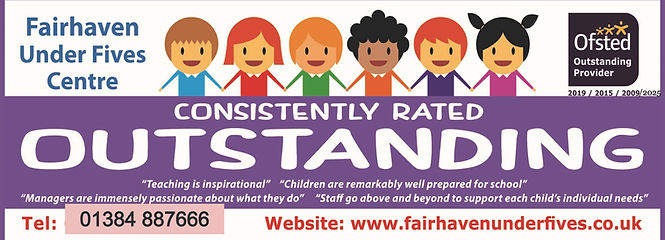
_edited_e.jpg)
News
EYFS Reforms:
September 2021:
The Early Years Foundation Stage (EYFS) is being reformed and there is a new EYFS framework that all nursery settings will have to follow from September 2021. These national changes have been made to better support all young children’s learning and development.
There are some elements of the EYFS that have not significantly changed and some that have. Below are some of the key points from the new EYFS reforms that include relevant changes which parents, carers and children may notice or experience.
-
Staff will be spending less time on large amounts of written observations and assessments for evidence collection. This means they can spend more time supporting and engaging with the children and their learning and developmental needs.
-
Children will no longer be assessed against statements from an age band category. Instead, staff will use their experience and knowledge to monitor if a child’s learning and development is on track for their age.
-
There is an emphasis on improving children’s language and vocabulary through increasing opportunities for conversations, reading of a wide range of books and holding discussions around activities in other areas of learning.
-
Literacy and numeracy skills focused on in the EYFS have been adapted to better match up with the national curriculum that starts in year 1.
-
There is no longer an exceeding judgement at the end of reception. Children will instead be challenged to have a greater depth and understanding of ideas.
-
Safeguarding and welfare of children is still a priority, with the added mention of teaching children about the importance of good oral health and how to keep teeth clean and healthy. The changes to Safeguarding and Welfare are largely wording based. For example “Local Safeguarding Children’s Board” has been changed to “Local Safeguarding Partners” to reflect some recent change in structure. A specific requirement for promoting staff and children’s online safety has been added. This reflects the technological advances we have made since the EYFS was last reformed in 2012.
How could you help learning and development at home to support the new EYFS reforms?
-
Read stories daily to your child and use them as an opportunity to talk about the characters and events in the story. You could also discuss some of the details children have spotted in the pictures, such as the character’s facial expressions.
-
Have lots of conversations with your child throughout the day. Try and increase their vocabulary by using a wide range of vocabulary.
-
Practise counting with your child and looking at small groups of items. Explore what happens to numbers when you put these small groups of items together, or split a larger group into two smaller groups.
-
Support your child’s early reading by practising phonic skills, such as recognising letter sounds and blending them together to read words.
-
Encourage your child to make healthy food and drink choices, especially related to sugar content and how this can affect teeth. Also, support your child to properly brush their teeth at least twice a day at home.
-
Plan activities that allow your child to be active and develop their strength through large body movements as well as smaller, more precise movements.
-
You can find a copy of the Development Matters Non-statutory curriculum guidance for the early years foundation stage using the following link: Development Matters - non-statutory curriculum guidance for EYFS (publishing.service.gov.uk)
Oral Health
Oral health has been included in the Early Years Foundation Stage (EYFS) because good oral health habits need to be formed from the earliest age. Tooth decay is largely preventable, but it’s still a serious problem among young children.
We are committed to promoting good oral hygiene practices in the setting, as well as offering support to our parents/carers.
We plan purposeful activities that support us in teaching the children about the importance of caring for their teeth. This is also underpinned by our approaches to promoting healthy eating in the setting.
Please use the link below to access The Children’s Oral Health programme which is freely available and aimed at parents, expectant mothers, early years healthcare workers, teachers, nurses, GPs and the public. The programme will help you support the children you care for to maintain good oral health. It covers the main causes of tooth decay and simple actions that can be taken to prevent any problems. It also explains when a child’s primary (baby) and adult (permanent) teeth start to appear, and what you should do if a tooth is knocked out.
Children’s Oral Health – elearning for healthcare (e-lfh.org.uk)